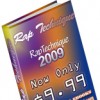are too many tags bad?
Are too many tags on an individual hub a bad thing? Do they "water things down"? And how many is too many?
How many do you usually use on each of your hubs, and why?
Thanks!I went back and removed a bunch of tags from hubs only leaving like 8-10 specific tags and my views and hub scores went up
Yes. No. Depends on the amount of text in the hub.
About 30 for an average length hub. Because more will cause problems.
You are welcome
hi Misha,
30 tags???
Wow, I was thinking maybe 5 to 10 is the limit...
It makes sense that the more text (content) then the more tags are ok. But when you say "30 is ok for the average length hub", what is an "average link hub"?
Thanks!- sandra rinckposted 16 years ago
0
I think too many tags sets you up for having your hub flagged for being misleading. If you pick maybe a handful of quality keywords I think it is better for your score and traffic altogether.
I think.... - fierycjposted 16 years ago
0
I used to have like 50 tags per hub cos I had so much info loaded in each of them. Then I noticed it affected the hubscores. But when I deleted some tags, the scores shot right up. Like magic!
15-20 seems to be the charm ...
Remember to keep those tags related to your hub content. If you don't ... well ... let's just say I warned ya.
During my limited experience with Hubpages, tags still confuse me. On my other sites I would limit my keywords to probably 5 maximum - a few very specific, and a couple more general. But those are keywords and not tags.
When I look at the source code for one of my hubs I can see the metatag for the title and description, which originate from the title and summary text on the hub, but I see no metatag for keywords. Yet if tags are keywords I would expect to see the metatag. So I'm still not sure if tags should be treated as keywords or not.
I limit my tags usually to about 12-15 but I'm reluctant to use more in case it dilutes the focus of the hub for the search engines, and also for Adsense. I have read that too many tags (keywords?) can be the reason for irrelevant adverts on the hub...but who knows.
Just about to post this when I checked the source code again and found the tags right near the bottom of the page in the code for the sidebar. I'm not sure if the search engines would give them any relevance so far down the code, but I'm no expert...Thanks for all the answers, input, and suggestions!
Looks like based on your respective author hubscores, the experts have spoken!
It depends on whom you're competing with. A tag itself is an anchored link which usually includes keywords or variations. The number of anchored links can play a role in ranking a particular hub by search engines, but I doubt it's crucial. Anyway, it's a factor analyzed by Internet Business Promoter I'm currently using.
It seems that I use about 8 tags per article. My first hub was a bit overloaded so I refined the tags according to the advice of others in this thread.
Also consider having one rather unique keyword that is identical across each of your hub groups. That will allow you to find your hubs much more easily in the site search, which in turn makes it easier to distribute topic-based RSS feeds for your hubs. It's much quicker to add and remove tags than it is to edit each article to include a unique keyword in the text if you decide that you need topic-based RSS feeds.After reading this post earlier I updated about 15 of my hubs and tried to remove tags that weren't directly referenced in hubs. I have a lot of book reviews so I removed generic references to preschool and home school, since those words aren't in many of the hubs themselves. The individual Hub scores increased a bit, but not drastically. However, it looks like that may be helping traffic some. Not that I get a lot on a day to day basis. Just a small steady trickle. Anyone else try this today?
Related Discussions
- 6
Too Many Tags
by Joseph Addams 17 years ago
The Hub Police just pulled me over again this evening. This time I had too many tags. Here's what they had to say."Your hub may not be in compliance with our publishing guidelines. Please review the message below, and correct the problem if possible.WARNING: This hub has a large number of...
- 3
How many tags are too many?
by Deborah Neyens 13 years ago
How many tags are too many?
- 35
Choice of keywords for Hubs
by Life at DrTom's 15 years ago
I know that the choice of keywords is important. But can you have too many keywords? What is wrong with using every word you can think of?
- 5
Is it possible to have too many tags?
by Sunnyglitter 15 years ago
Is it possible to have too many tags?I use most of the suggestions given to me (by HubPages) when I write an article. Do tags really make a difference?
- 72
Tag suggestions
by Paul Deeds 17 years ago
We just recently released a small update to the site. There are lots of little things, but the two changes that you'll probably notice are:1. Tag suggestions -- we now have the ability to analyze the text of your hub, and can suggest tags that may be appropriate. Look for this on your...
- 44
Can you have too many comments?
by Dolores Monet 15 years ago
Will having too many comments posted on a hub be a cause for concern? Could too many comments make a hub less google worthy? I have one hub with over 200 and that seems excessive.

















